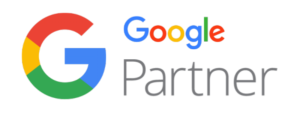Considering the popularity of Google.com today, it’s understandable if many people believe that the company invented the business model behind search engines. However, that model — pay-per-click advertising — was developed by the company Goto.com, which eventually became Overture.com in 2001.
This business model drives more than a hundred billion dollars in revenue a year for Google and other big search engines — but, few people have heard of Overture. To understand how that happened, we went to Overture.com and discovered that the site is no longer being published. We took the time to follow its history and find out what happened.




 Yahoo acquired Overture for $1.63 billion in 2003 (Source). With this purchase, Yahoo aimed to make its position against rivals Microsoft and Google stronger. Even before Yahoo bought it, Overture had already filed infringement cases against Google and other websites.
Yahoo acquired Overture for $1.63 billion in 2003 (Source). With this purchase, Yahoo aimed to make its position against rivals Microsoft and Google stronger. Even before Yahoo bought it, Overture had already filed infringement cases against Google and other websites.



The History of Overture.com
Overture com was the pioneer of pay-per-click advertising and used a system where search terms are auctioned off. GoTo.com was so successful that by the year 2000 it had up to 25,000 advertisers who had made around 4 million bids for up to 500,000 keywords. The company’s revenue in 1999 was reported to be $26.8 million even though it was losing money (Source). Overture’s pay-per-click advertising was a business model that relied on providing listings to various other search engines. Each advertiser was involved in an auction each time a user searched for a keyword. The primary goal of the advertisers, bidding for these keywords, was to improve their visibility in those search engines that Overture.com was working in partnership with.The man behind Overture.com
Bill Gross, may not be as famous as Larry Page and Sergey Brin, the founders of Google.com, but he is the man responsible for one of the most important models of the internet epoch. Gross noticed that the search engines of that time were inefficient and the people using them often struggled to find what they were looking for. With the tagline “search engine made simple”, he established Goto.com in 1996. Yahoo acquired Overture for $1.63 billion in 2003 (Source). With this purchase, Yahoo aimed to make its position against rivals Microsoft and Google stronger. Even before Yahoo bought it, Overture had already filed infringement cases against Google and other websites.
Yahoo acquired Overture for $1.63 billion in 2003 (Source). With this purchase, Yahoo aimed to make its position against rivals Microsoft and Google stronger. Even before Yahoo bought it, Overture had already filed infringement cases against Google and other websites.
The Infringement Case by Overture
The suit against Google was filed by Overture.com in May 2002 before the Federal District Court in San Francisco. In its papers, Overture alleged that Google was infringing on its patent with its AdWords Select (Source). The then Overture spokesman, Al Duncan, said: “We’ve recently become aware that (Google is) infringing on our patent, and it’s our policy to protect our intellectual property,” (Source). Google was adamant that it did not infringe on the Overture patent. Google spokesperson, Cindy McCaffrey, is quoted saying, “Basically we’ve analyzed the patent and determined that we do not infringe on any valid claim that it contains,” (Source). Eventually, in an out of court settlement, Yahoo accepted an offer of a five percent stake in Google.




2 Responses
I was with GoTo/Overture from 1999 to 2003. It was an exciting time to be part of that company. It wasn’t just another tech job. To me it was like when Apple introduced the Macintosh in 1984, GoTo changed how the world worked. Before GoTo, it was Banner Ads for everything online. Search made advertising effective for both advertisers and consumers. Those early years also made it possible for small companies with a website to compete with the national brands. I find their successes to be evidence that our efforts did some good and take pride in that.
Thank you for taking a moment to post a bit of a eulogy for this piece of internet history.
I loved Overture. I was a customer and could budget better for space on the big search engines. I remember when it shut down and when Google, Yahoo, and MSN, and their PPC went independent to their search pages, it lost its value as I then had to create accounts and a budgets for all three, where as before my one account with Overture got my business exposure to all three. I knew it was over when I called and the ad listing would appear on sites like ESPN. whoTF searches on ESPN. Sad because a model like Overture would still work today. What happened was the big boys saw that money being made off of their platforms and they wanted in which ultimately shut it down. smh 🤦 Now everybody looses.